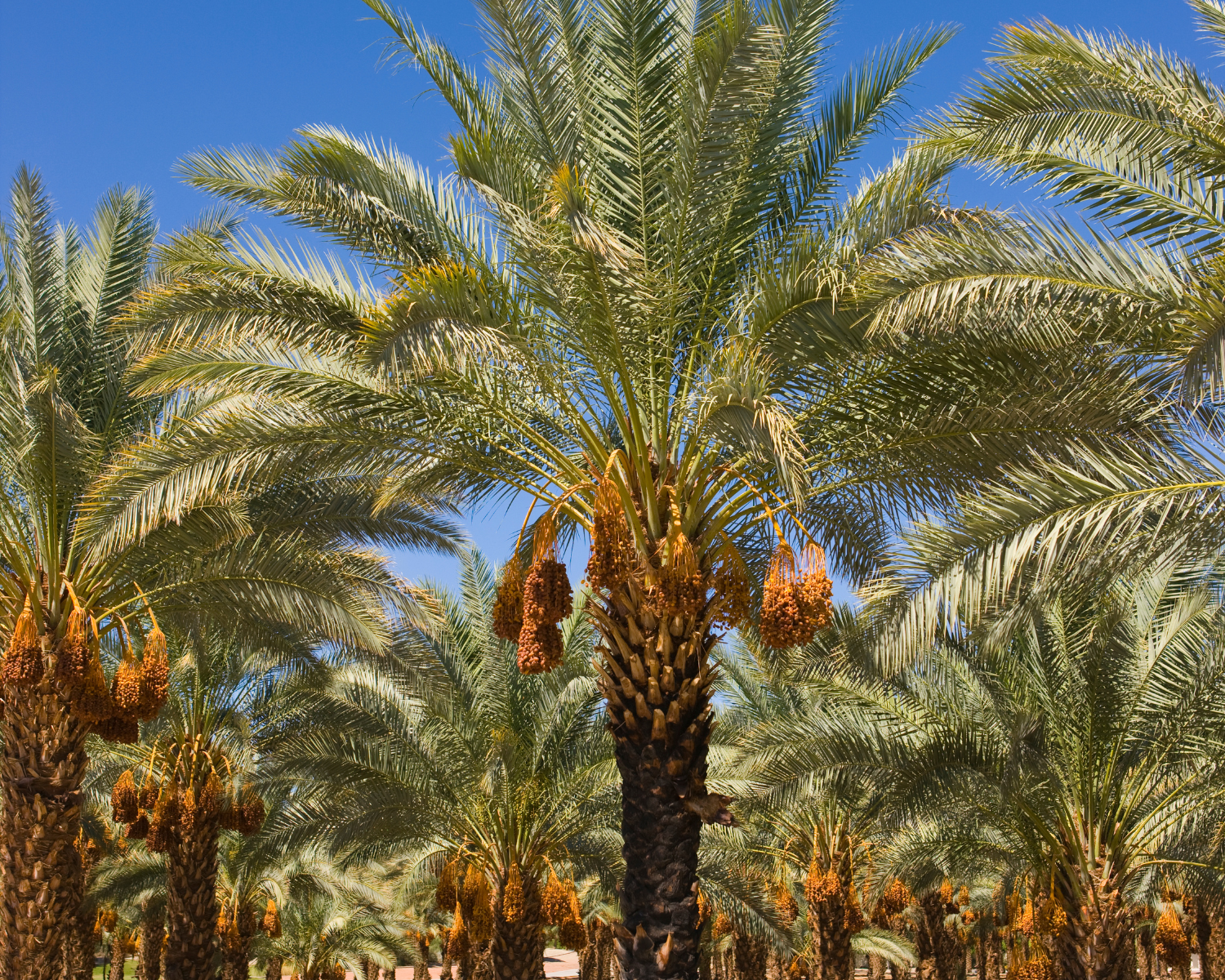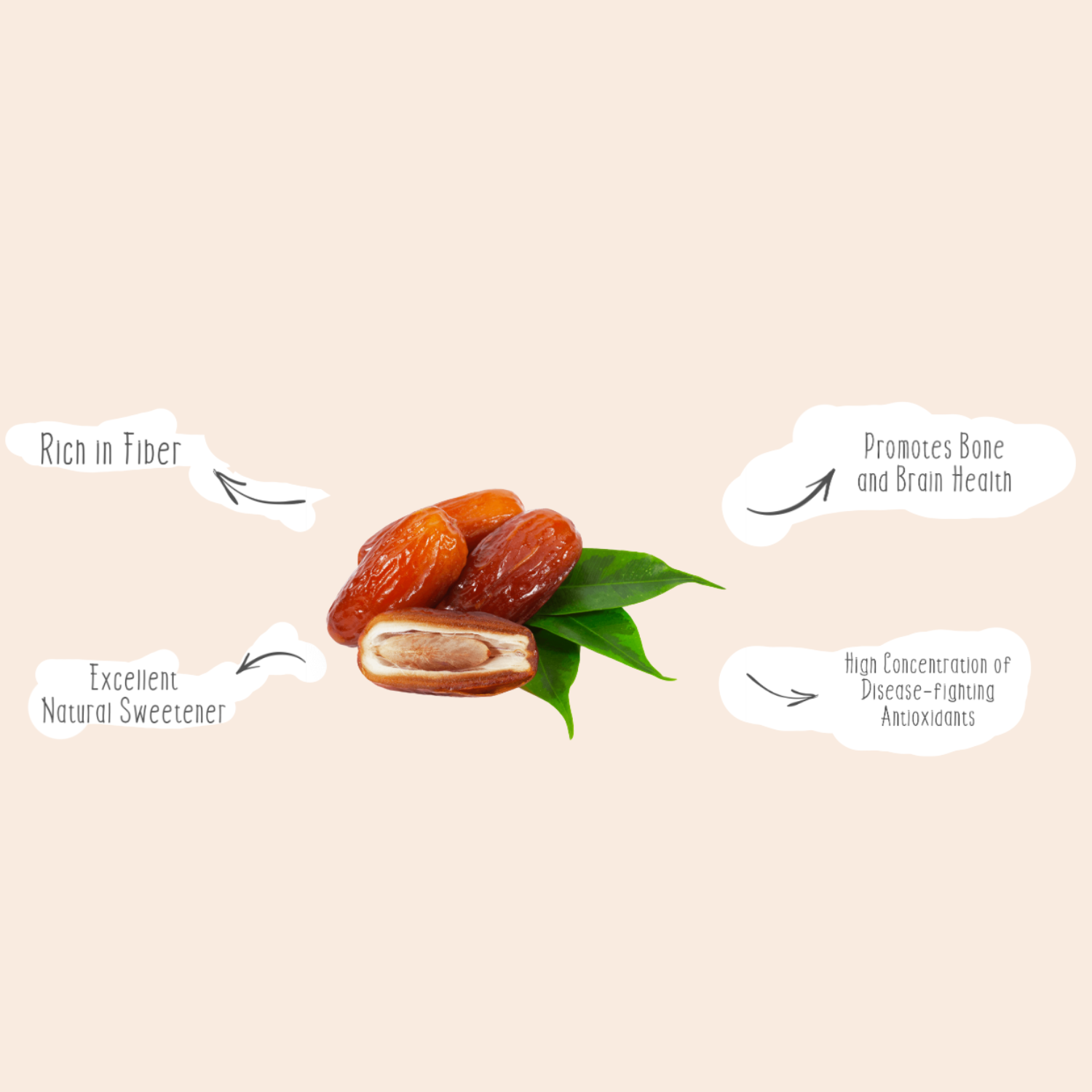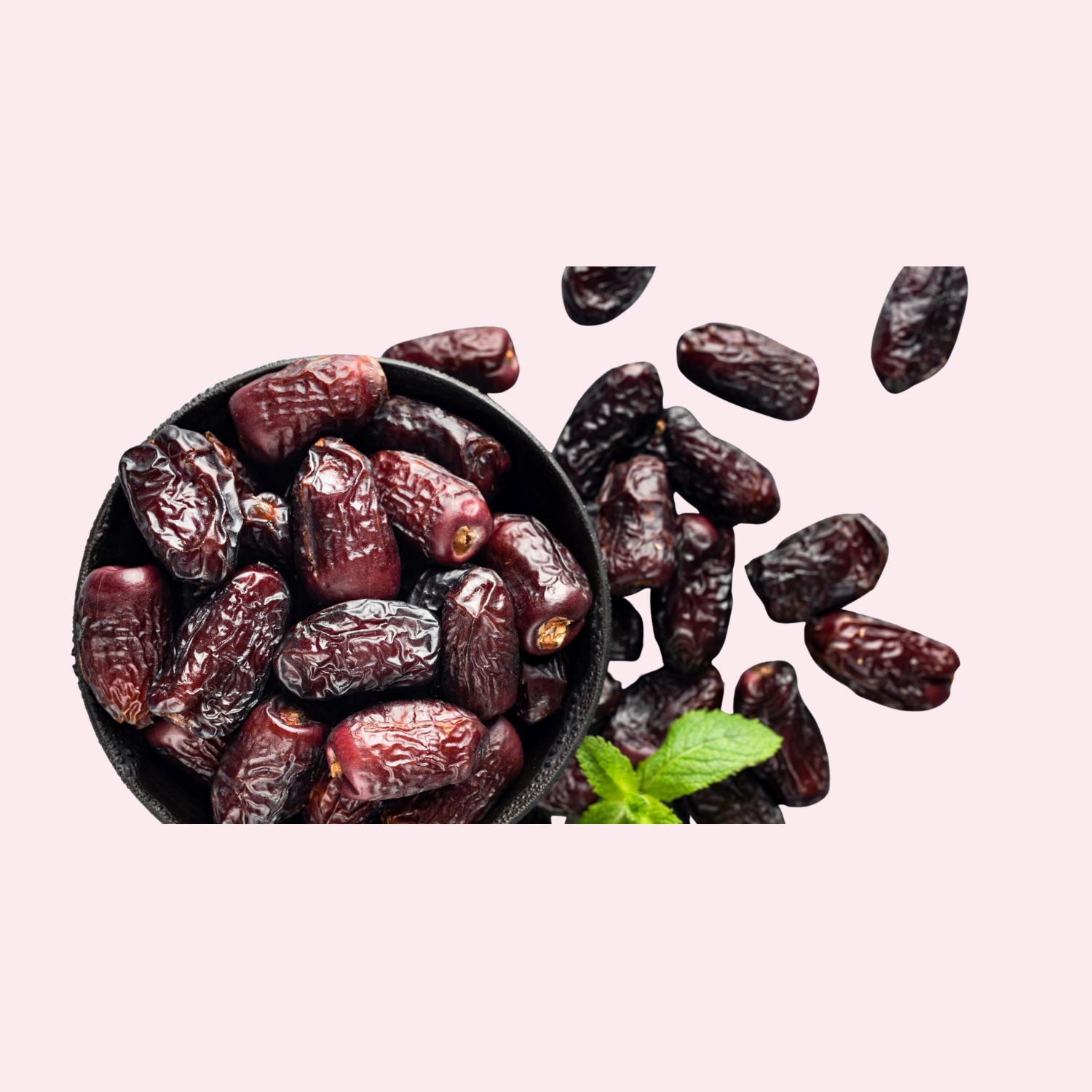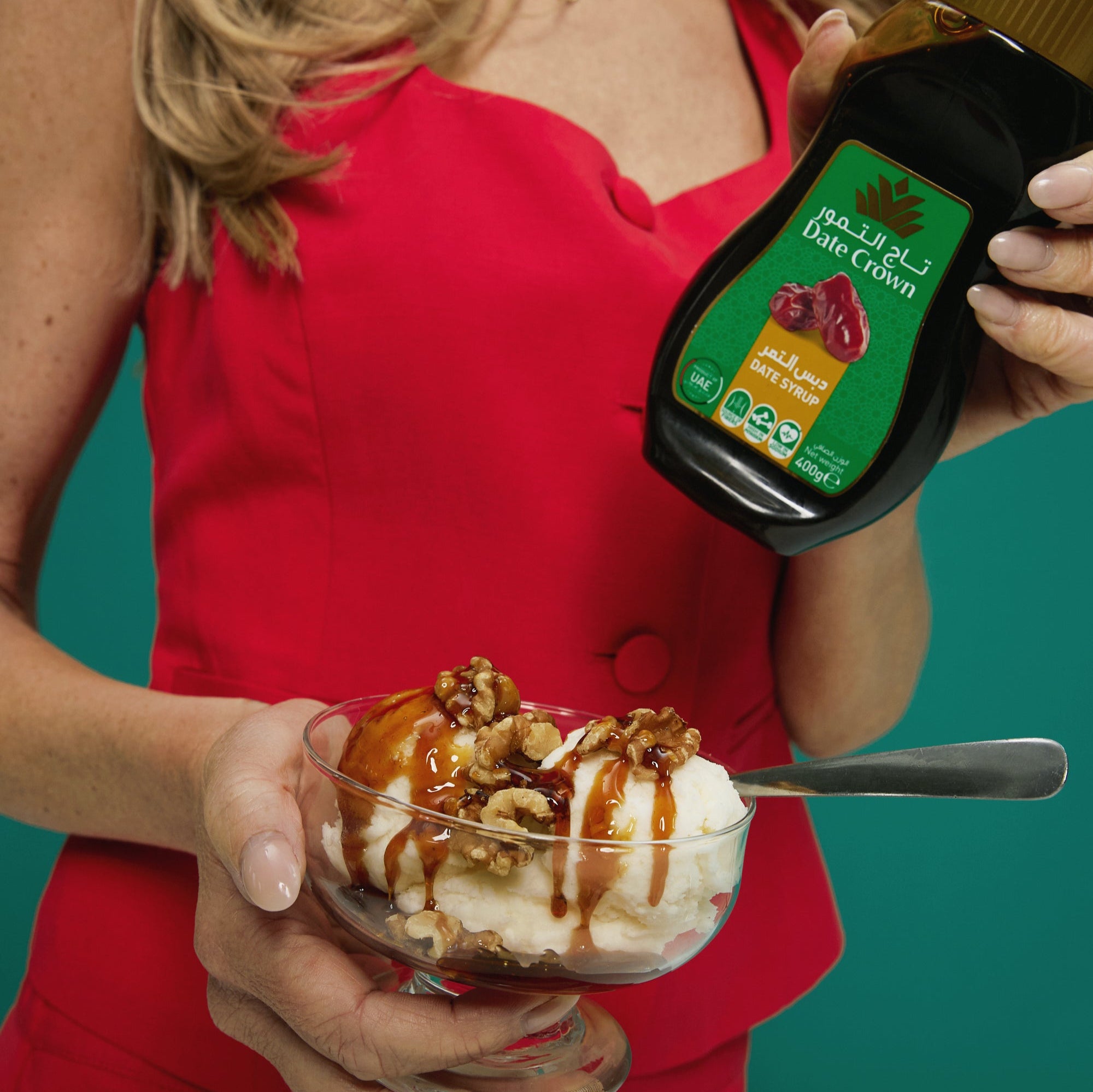

What is a Date?
Dates are the sweet, chewy fruit of the date palm tree, Phoenix dactylifera. Originating in the Middle East and North Africa, they've been a staple food for thousands of years, revered for their nourishing properties and versatility.
While there are hundreds of varieties, here are some distinct types with their unique characteristics:
- Lulu: Often referred to as "plum dates" due to their small, round, plum-like appearance. These Iranian dates are semi-dry with a dark brown color and a sweet, caramel-like flavor. They have a small pit and a chewy, fleshy texture, and are known for their good shelf life.
- Khalas: A widely popular and high-quality date, particularly in the Arabian Gulf. Khalas dates are medium-sized, with a smooth, golden-brown to dark amber skin and a soft, moist, and mildly sweet flesh with hints of toffee or caramel. They're excellent for daily snacking and often served with Arabic coffee.
- Kheneizi: Characterized by their attractive black color and medium size. Kheneizi dates are soft, juicy, and mildly sweet with a rich flavor, highly sought after for their distinctive dark hue and succulent texture, especially in the UAE.
- Ajwa: Considered a "Holy Date" in Islamic tradition, grown exclusively in Medina, Saudi Arabia. Ajwa dates are distinctively dark brown to almost black, with a soft, dry, and prune-like texture. They offer a unique, mildly sweet flavor with subtle notes of caramel, honey, and cinnamon. They are highly prized for their unique properties and often consumed for their traditional health benefits.


Nutritional Powerhouse
Don't let their sweetness fool you; dates are packed with essential nutrients, making them a true superfood.
Macronutrients:
- Carbohydrates: Dates are primarily composed of natural sugars (fructose, glucose, and sucrose), providing a quick and sustained energy boost.
- Fiber: An excellent source of both soluble and insoluble dietary fiber, crucial for digestive health and blood sugar regulation.
- Protein & Fat: Dates are naturally low in both, contributing to their light and easily digestible nature.
Micronutrients (Vitamins & Minerals):
Dates boast an impressive array of vitamins and minerals, including:
- Potassium: Vital for maintaining healthy blood pressure, muscle function, and nerve signals.
- Magnesium: Important for bone health, muscle and nerve function, and regulating blood sugar.
- Copper: Essential for iron absorption and the formation of red blood cells.
- Manganese: Plays a role in bone formation and metabolism.
- Vitamin B6: Important for brain development and and function.
- Iron: While in smaller amounts, it contributes to red blood cell formation and preventing anemia.
Antioxidants:
Dates are loaded with powerful antioxidants that combat oxidative stress and inflammation in the body. These include:
- Polyphenols: Compounds known for their anti-inflammatory effects.
- Flavonoids: Antioxidants that may help reduce the risk of heart disease and certain cancers.
- Carotenoids: Precursors to Vitamin A, beneficial for eye health.


Science-Backed Health Benefits
The rich nutrient profile of dates translates into a range of impressive health benefits:
- Digestive Health: Thanks to their high fiber content, dates are fantastic for promoting regular bowel movements and preventing constipation. The fiber also acts as a prebiotic, feeding beneficial gut bacteria.
- Natural Energy Boost: Their natural sugars offer a readily available energy source, making them an ideal pick-me-up or pre/post-workout snack.
- Heart Health: The potassium in dates helps regulate blood pressure, while fiber can assist in lowering "bad" LDL cholesterol. Their antioxidants further protect against oxidative stress linked to heart disease.
- Bone Strength: Minerals like magnesium, manganese, and copper all contribute to maintaining strong, healthy bones.
- Brain Support: Antioxidants in dates may help reduce inflammation and oxidative stress in the brain, potentially supporting cognitive function.
- Blood Sugar Management: While sweet, the fiber in dates helps moderate the absorption of sugars, leading to a more gradual rise in blood sugar compared to refined sugars. However, individuals with diabetes should still consume dates in moderation and consult their healthcare provider.
- Anti-Inflammatory Properties: The potent combination of antioxidants and polyphenols gives dates natural anti-inflammatory capabilities.


Culinary Uses & Versatility
Dates are incredibly versatile in the kitchen, adding natural sweetness and a unique texture to countless dishes:
- Snacking: Enjoy them on their own for a healthy, satisfying treat.
- Natural Sweetener: A perfect substitute for refined sugar in smoothies, desserts, and baked goods.
- Baking: Chop them into energy bars, cookies, cakes, and breads for added moisture and sweetness.
- Savory Pairings: Dates beautifully complement savory flavors in salads, tagines, or wrapped in bacon with cheese.
- Date Syrup/Paste: These concentrated forms of dates are excellent for sweetening sauces, dressings, and desserts.
- Traditional Significance: Dates hold deep cultural importance, particularly in the Middle East, often consumed to break fast during Ramadan or offered as a symbol of hospitality.
Storing Your Dates
To keep your dates fresh and delicious:
- Fresh Dates: Store in an airtight container in the refrigerator for several weeks.
- Dried Dates: Keep them in a cool, dark pantry for up to six months, or in the refrigerator for up to a year.
- Freezing: For long-term storage, dates can be frozen in an airtight container for over a year.

